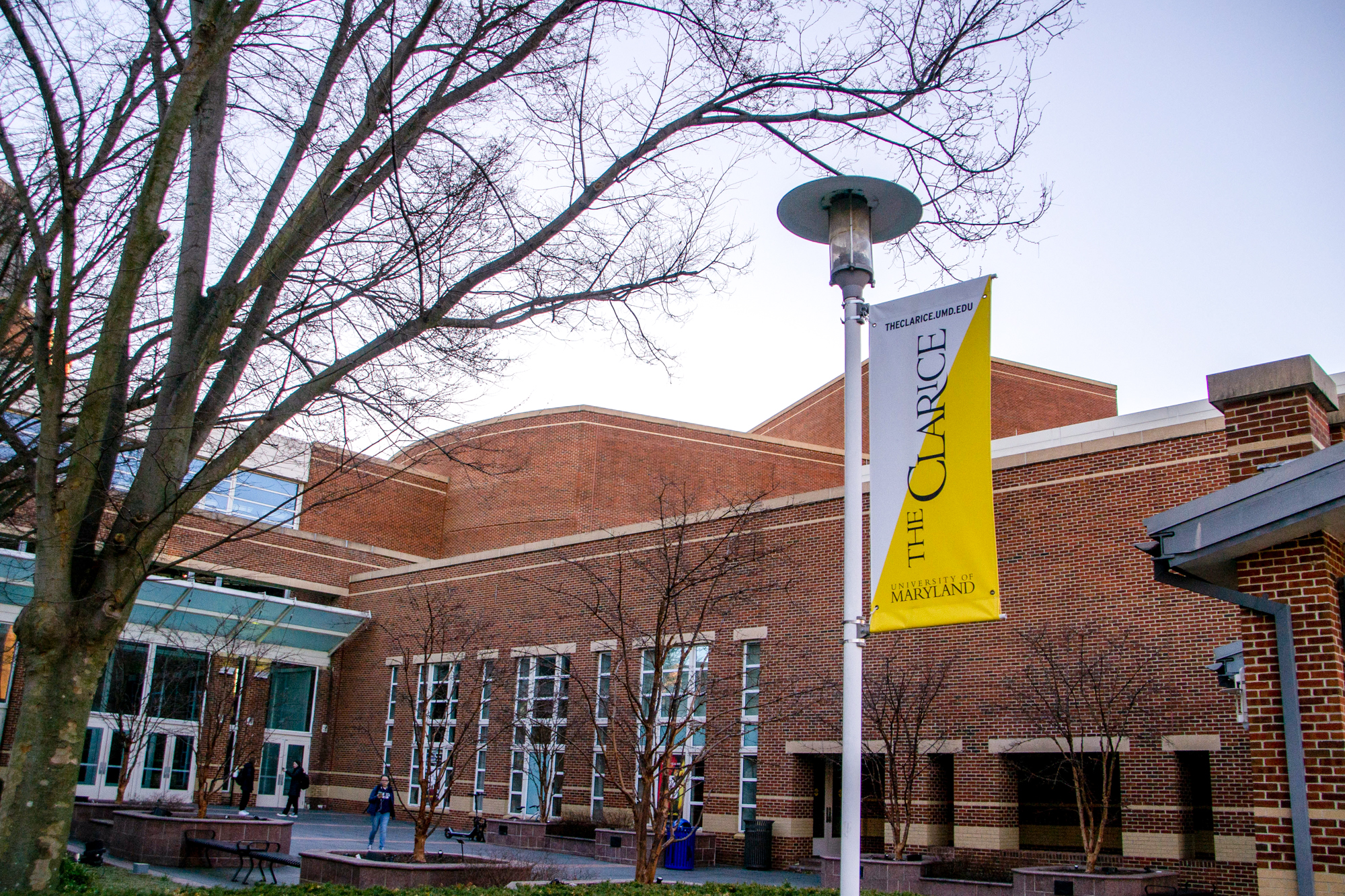
Content warning: This article discusses racial violence.
Audience members attending Food for the Gods stood outside the Kogod Theatre at the Clarice Smith Performing Arts Center Friday waiting to be let in for the performance. Prior to the performance, audience members were invited to a reception at the Clarice that offered snacks, drinks and a chance to mingle with other audience members.
Soon, audience members began whispering among themselves. The show was set to begin at 7 p.m., so why were they still not let into the theater? Suddenly, the lights around them dimmed, and a projector lit up a nearby wall, showing images of Black men who had been killed. Suddenly, actress Nia T. Jackson, first thought to be an audience member, began clawing at the projection.
It was then audience members realized the show had begun.
Food for the Gods, written and directed by Brooklyn-based creative Nehprii Amenii, is an interactive performance based on the killings of Black men. The production uses music, dance, puppetry and acting.
Jackson said she drew on her experience as an empath to play “Girl,” someone she said represents everyone who has to continue living their lives even after repeatedly hearing about the tragedies of Black men getting killed.
“I think for me, ‘Girl’ is how we manage to continue life, despite all the tragedy around us,” Jackson said.
[Powerful performances took center stage in Kreativity Diversity Troupe’s fall showcase]
Jackson said she listened in on audience members’ conversations during the reception as she waited for her cue at the start of the performance. She said her reveal’s surprise is part of what made the show special.
“This immersive [performance] was intentional, I think, to keep people present,” said Kymbali Craig, who played “Mother” in the performance. She said the immersive theater experience prevented audiences from feeling desensitized to the violence.
When audience members first entered the theater, “Mother” was seen sprinkling powder on laying ensemble members, who soon rose up in resurrection. Some ensemble members held paper face-casts, meant to represent the Black men who had been killed.
Alex Lopez, who played an ensemble member, said each of them were assigned a story of a person killed. Lopez shared the story of Sean Bell, a 23-year-old aspiring electrician who police killed in 2006, hours before his wedding. Lopez performed this section in Spanish.
“[This is] just to represent the fact that these [killings] not only happened here, this is happening around the world,” Lopez said.
Audience members walked through a maze that led them to the center of the stage, where Craig’s character expressed pain over the lynchings of Black men. Craig said “Mother” is metaphorical in how she is the mother of all the men lynched over centuries.
“Mother” lives between two roles, both grieving and resurrecting the killed men, Craig said.
[32 Bars unites students performers for fall musical production]
The show culminated in an imagined feast hosted by the spirit of Frank Embrée, a 19-year old Black man who was falsely arrested for rape in 1899, which led to his violent lynching by a mob. Embrée, played by Elijah Williams, invited other spirits to join him in the feast.
Each of the cast members performed with conviction and a dedication to telling the stories of the many men whose lives were taken. I was brought to tears within the first few minutes of the performance.
Transformative, interactive and straightforward, Food for the Gods expressed the emotional turmoil spawned by racial violence.
